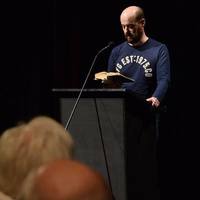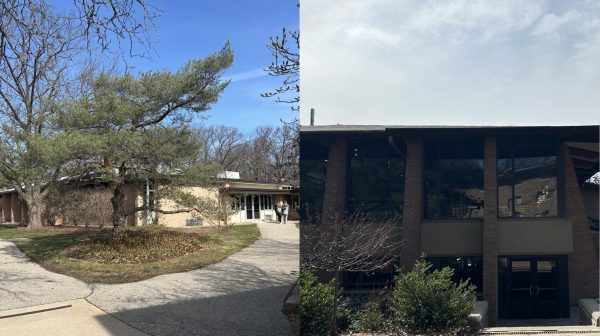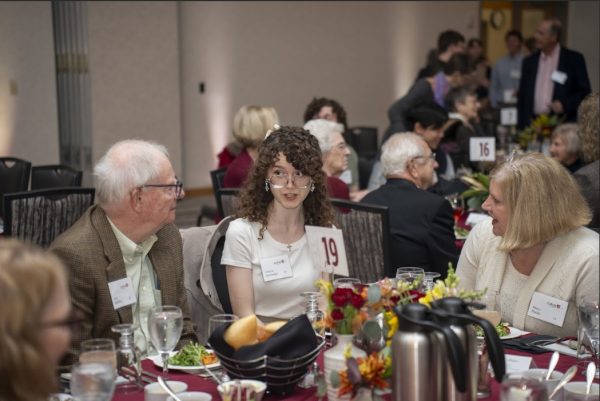“Cherishing this long-term relationship”: Faculty exchange links Calvin with Károli Gáspár University

During his visit to Calvin, Péti gave a lecture on reading Milton behind the iron curtain.
Péti Miklós, Milton scholar and head of the Institute of English Studies at Károli Gáspár University of the Reformed Church in Hungary, visited Calvin this week.
Calvin has cultivated an ongoing partnership with Károli Gáspár since the early 2000s, according to Péti. Before the COVID-19 pandemic, Calvin students participating in the Hungary semester would study at the university every fall.
The two universities also participate in a mutual faculty exchange. This exchange allows faculty to “see how other colleagues are working out their faith,” Lew Klatt, professor of English said, because “we don’t have the corner on Reformed theology; we don’t have the corner on God or Christianity.”
Visiting faculty learn about the other institution’s vision and goals, spend time in classrooms and explore the cities, according to Klatt, who visited Károli Gáspár for a week in the fall of 2018.
While in Hungary, Klatt co-taught a short story by Flannery O’Connor with a Hungarian English professor. Klatt has since incorporated this story into his curriculum at Calvin.
Péti is interested in learning about administrative processes and curricular choices here at Calvin, given his position as head of Károli Gáspár’s institute of English Studies. “I’m very curious about courses,” Péti said. He is particularly interested in learning about decisions made around theology courses and “Bible as literature” courses.
In addition to learning from the universities, they are visiting faculty from universities abroad who also contribute their expertise. Before his stint at Károli Gáspár, Klatt said he “spent a lot of time thinking about what faithfulness to Christ might look like in poetry,” and subsequently gave a lecture at the university on “the essential strangeness of poetry and why it is a genre that is challenging for people.”
While at Calvin, Péti gave a lecture about reading Milton, and the classics more generally, behind the iron curtain. Governmental control of the literature system — including, but not limited to, a twisting of Milton’s body of work to imply that he was a proto-socialist revolutionary — “resulted in a heavy distortion of the literary canon,” Péti said.
The visiting faculty do not spend their whole time engaged in academic pursuits. When visiting Hungary, Klatt said that he and his wife had a great time exploring the museums and shops of the city of Budapest as well as learning about its history.
During Péti’s time in Michigan, he visited Lake Michigan and Holland and also spent time enjoying Calvin’s “wonderful campus.”
Both professors said the experience was a valuable one. “By having a faculty exchange, it just takes [the connection between universities] to another level,” Klatt said.
From Péti’s perspective, the shared Reformed tradition of both universities gives them a measure of commonality, and through the faculty exchange, “we are, kind of, cherishing this long-term relationship.”








